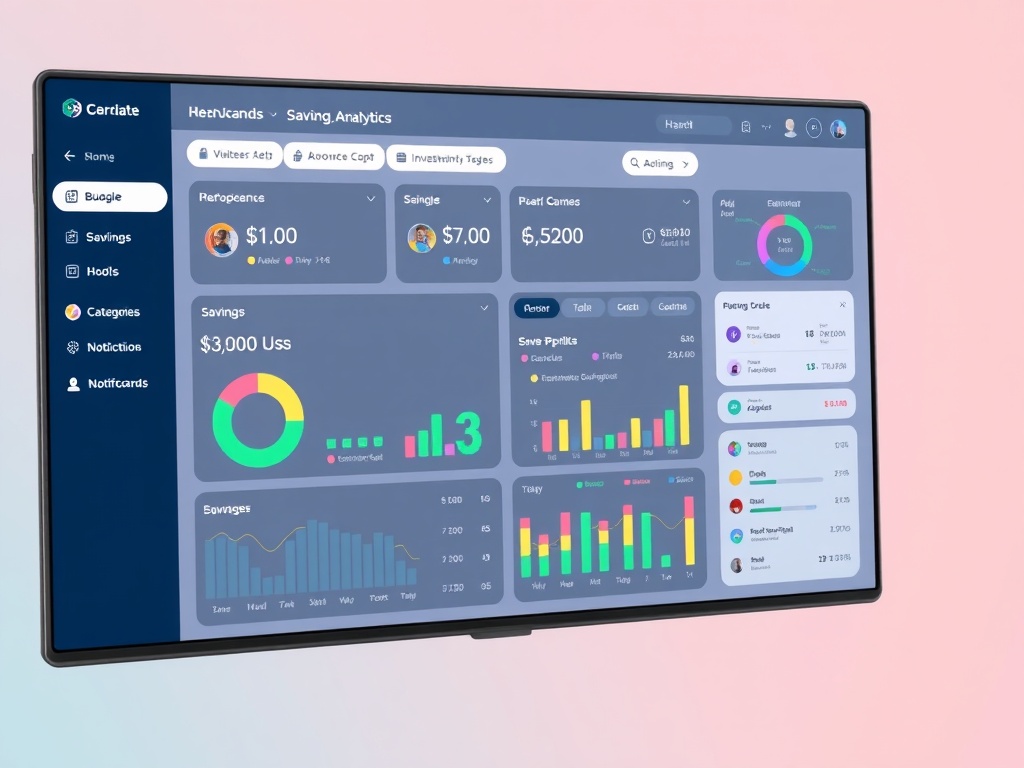Budgeting has always been a cornerstone of financial stability, but in today’s digital era, the way people manage money has evolved dramatically. The rise of fintech apps, digital banking, and artificial intelligence has transformed budgeting from a tedious task into a dynamic, data-driven process. In 2025, financial success is no longer just about cutting expenses—it’s about using smart tools, automation, and real-time analytics to make informed financial decisions.
This article explores the most effective smart budgeting tips for the digital era, helping individuals and families take full control of their finances using modern technology.
The Digital Transformation of Personal Finance
A decade ago, budgeting meant spreadsheets and manual calculations. Today, the digital revolution has turned money management into an automated, intuitive experience. Mobile banking apps now offer real-time expense tracking, AI-based financial recommendations, and even predictive insights about upcoming bills or potential savings opportunities.
This shift has given rise to the concept of smart budgeting—a system that integrates technology and behavioral insights to optimize how people save, spend, and invest. The digital transformation has not only made budgeting easier but also more personalized and efficient.
Why Smart Budgeting Matters in 2025
In a world driven by instant transactions and digital subscriptions, it’s easy to lose track of small, recurring expenses. Streaming platforms, delivery services, and online shopping all add convenience—but they can also create invisible financial leaks.
Smart budgeting tools help close these gaps by:
- Providing real-time visibility into where money goes.
- Using AI-driven alerts to prevent overspending.
- Suggesting goal-based saving plans.
- Offering data-backed insights for better decision-making.
As inflation, market volatility, and cost-of-living pressures continue to rise, adopting smart budgeting habits is essential for maintaining financial balance and building long-term wealth.
Leveraging Budgeting Apps and Fintech Tools
One of the biggest advantages of living in the digital era is the abundance of budgeting apps designed to simplify personal finance. Tools like Mint, YNAB (You Need A Budget), PocketGuard, and Goodbudget use automation to track expenses and categorize spending without the need for manual entry.
Here’s how to make the most of them:
- Automate your tracking: Link your bank accounts and credit cards so the app categorizes transactions automatically.
- Set personalized goals: Define objectives like saving for travel, reducing debt, or building an emergency fund.
- Review insights weekly: Use the app’s analytics to understand spending trends and adjust habits accordingly.
AI-powered fintech tools go even further by offering predictive financial advice—helping users anticipate cash flow issues before they happen. These innovations allow for proactive, not reactive, financial management.
The Role of Artificial Intelligence in Budgeting
AI is revolutionizing personal finance management. It doesn’t just record transactions; it interprets them. Intelligent budgeting platforms analyze historical behavior to forecast future expenses, detect irregularities, and even recommend personalized savings strategies.
For example, an AI system might notice that you spend 15% more on groceries in certain months and suggest adjusting your budget or switching to lower-cost alternatives. Over time, these micro-adjustments compound into significant financial improvements.
Additionally, AI helps users stay disciplined. Some apps use behavioral nudges—small reminders or motivational messages—to encourage saving or to warn when spending exceeds a threshold. These subtle interventions make budgeting feel less restrictive and more empowering.
Building a Digital-First Budgeting Mindset
Smart budgeting isn’t just about tools—it’s also about mindset. To fully leverage the benefits of digital budgeting, individuals need to cultivate digital financial discipline. This means being intentional about how technology is used in everyday money management.
Key practices include:
- Reviewing digital subscriptions: Cancel services no longer in use.
- Using contactless payments strategically: Set limits or alerts for spending caps.
- Embracing automation: Schedule bill payments and savings transfers to avoid late fees and missed goals.
- Maintaining digital security: Use two-factor authentication and trusted apps to safeguard your financial data.
The goal is to let technology work for you—not against you—by combining automation with awareness.
Creating Realistic Budgets with Digital Tools
Many people fail at budgeting because they set unrealistic expectations. Digital tools can prevent this by analyzing past spending patterns and suggesting achievable limits. Instead of imposing strict cutbacks, smart budgeting focuses on gradual, sustainable improvement.
To create a realistic digital budget:
- Track your baseline – Start by understanding your average monthly expenses over the last three months.
- Categorize spending – Divide expenses into essentials (rent, groceries, utilities) and non-essentials (entertainment, dining out).
- Set flexible goals – Allow small indulgences to maintain motivation while staying within limits.
- Use visual dashboards – Graphs and pie charts help you see progress at a glance.
Over time, this data-driven approach builds confidence and fosters better financial habits.
Automating Savings and Investments
Automation is a cornerstone of smart budgeting. Instead of relying on willpower, automated systems ensure that saving happens consistently. Apps like Digit, Acorns, and Qapital round up purchases or transfer small amounts automatically into savings or investment accounts.
Benefits of automation include:
- Consistency: Money is saved before it’s spent.
- Goal achievement: Automatic transfers help reach targets faster.
- Reduced stress: No need to manually allocate funds every month.
In 2025, automation is no longer optional—it’s an essential strategy for financial efficiency.
Digital Tools for Debt Management
Debt management has also entered the digital age. Platforms like Tally, Debt Payoff Planner, and Undebt.it use algorithms to create optimized repayment plans based on interest rates and income levels.
These tools prioritize high-interest debts and automate payments to prevent late fees. Some even simulate “what-if” scenarios, allowing users to see how paying extra each month could accelerate debt freedom. This data-driven approach transforms debt management from a source of anxiety into a structured, achievable process.
Financial Education in the Digital Era
One often-overlooked aspect of smart budgeting is education. Many fintech platforms now integrate learning modules to teach users about credit scores, interest rates, and investment basics. Informed users make better financial decisions, and digital tools help bridge the knowledge gap.
Social media platforms and financial podcasts also contribute to this democratization of financial literacy. However, users must be cautious to verify sources and rely on credible information, as misinformation can lead to costly mistakes.
Sustainability and Conscious Spending
The digital generation is more conscious than ever about how spending affects both personal finances and the planet. Smart budgeting apps now include sustainability metrics, showing how purchases align with environmental and ethical values.
For example, some platforms categorize eco-friendly spending or track carbon offsets from investments in green funds. This integration of financial and ethical data encourages responsible consumption and supports long-term well-being.
Overcoming Common Budgeting Challenges
Even with advanced tools, challenges persist. The most common include:
- Inconsistent tracking due to app fatigue.
- Emotional spending, often triggered by online shopping.
- Data overload, leading to confusion instead of clarity.
To overcome these, simplify your digital financial ecosystem—use one main app for tracking, one for saving, and one for investing. Focus on insights that truly matter rather than trying to analyze every transaction in depth.
The Future of Smart Budgeting
Smart Budgeting Tips for the Digital Era: As AI and data analytics continue to advance, the future of budgeting will be hyper-personalized. Imagine an intelligent assistant that not only tracks your expenses but also anticipates financial risks and adjusts your plan automatically.
Next-generation budgeting will integrate with wearable devices, analyze emotional states, and align spending with personal values. Blockchain-based financial management systems will also enhance transparency and security, providing a seamless, interconnected experience across platforms.

In Summary: Smart Budgeting Tips for the Digital Era
Smart budgeting in the digital era is more than just an evolution—it’s a revolution in how people interact with money. Technology has made it possible to manage finances with precision, efficiency, and personalization. Whether through automation, AI insights, or fintech innovation, today’s tools empower individuals to achieve financial freedom faster and with greater confidence.
The key to success lies in balance: using technology intelligently while staying mindful of personal goals and values. Those who master this blend of data and discipline will not only thrive financially in 2025 but also set the foundation for long-term stability in an ever-changing economy.




